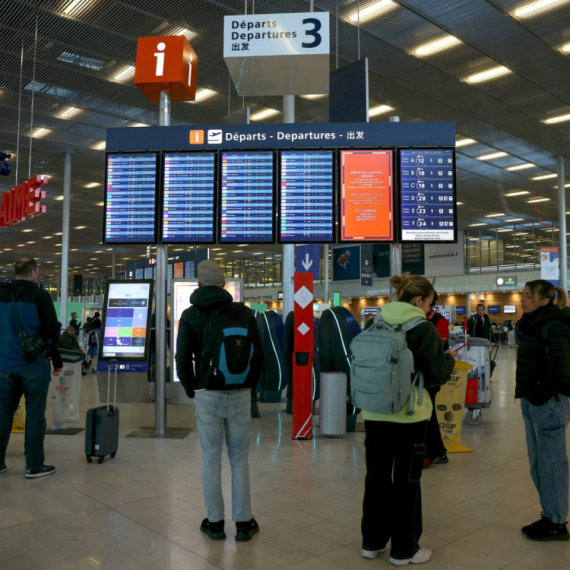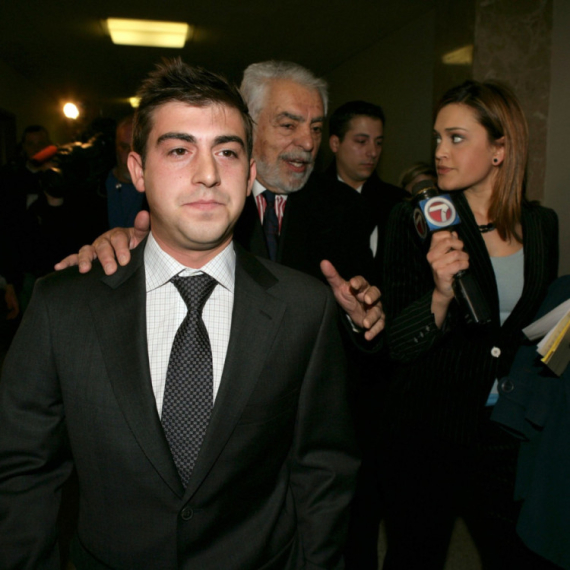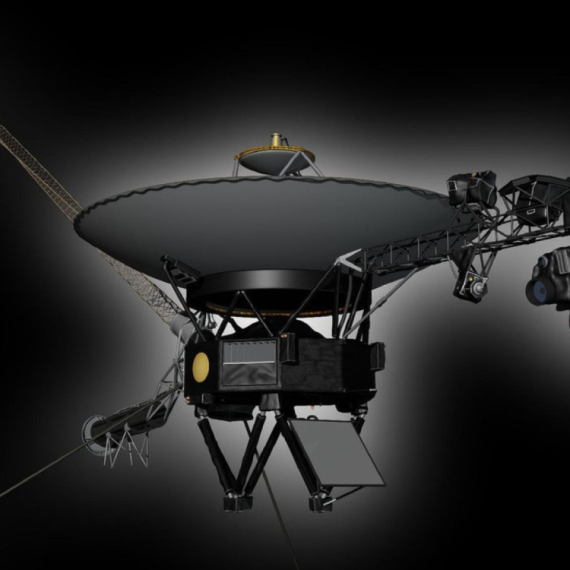Serbia, Russia reject Ban Kosovo plan
A UN Security Council session in New York today heard Moscow and Belgrade reject a proposal to reconfigure the UN mission in Kosovo, UNMIK.
Friday, 20.06.2008.
09:35

A UN Security Council session in New York today heard Moscow and Belgrade reject a proposal to reconfigure the UN mission in Kosovo, UNMIK. The meeting opened with an address from UN Secretary-General Ban Ki-moon, who earlier sent letters containing the proposed changes to Belgrade and Pristina. Serbia, Russia reject Ban Kosovo plan Ban, who today described Kosovo as "the greatest challenge" in his diplomatic career spanning 40 years, said that the goal of the intended reconfiguration was to "strengthen the operative role of the EU in the field", under the UN auspices, with a mission Brussels intends to deploy – EULEX – assuming more responsibility in the police, judiciary and customs sectors. "The European Union will have increased operational responsibilities in the sectors of international police, judiciary and customs, within the framework of a reconfigured UNMIK and in keeping with mandate defined by the UN SC Resolution 1244," Ban said. "The constitution adopted by Kosovo authorities does not envisage a role by UNMIK and the powers of the UN secretary-general's special representative should be taken over by the new authorities," he continued. "On the other hand, Kosovo Serbs rejected overwhelmingly the new constitution and laws and extended their boycott to Pristina institutions, whereas they had earlier agreed to abide by UNMIK's laws." "All this has undermined UNMIK's capability to exercise most of its tasks as temporary administration, he said, adding that this was the reason why he set out in his report his intention to adapt operational aspects of the international civilian presence in Kosovo," Ban noted. "The proposed solution on international civilian presence in Kosovo is not ideal, but it represents a result of efforts to arrive at a compromise. This is a package of practical and implementable measures, a concrete and sustainable answer to a complex and difficult situation, based on the need to maintain international peace, as well as security and stability in Kosovo and the region, at the same time providing an answer to the changed circumstances in the field," the UN chief said. Ban also confirmed today that Italian Lamberto Zannier will be taking over from Joachim Ruecker as UNMIK's chief. "He will help achieve the vision found in the report on UNMIK reconfiguration, and will lead a new phase of dialogue, with a scrupulously balanced approach," the secretary-general said. But President Boris Tadic, present at the session today, said that Serbia cannot accept the Ban report and proposals, and stressed that the UN Security Council is the only institution that is authorized legitimately to change the composition of the international presence in Kosovo. "The Republic of Serbia maintains that the direction of action proposed in the report is not conducive to a compromise solution for the future status of her southern province. That is why Serbia cannot accept the report of the secretary-general," he said. "Until the very end of the process of the determination of the future status of Kosovo that is envisaged under UN Security Council Resolution 1244, the international community, spearheaded by the UN, must maintain its central role in the preservation of peace and stability in Kosovo and Metohija," the president continued. The UN Security Council is the only body that can make a decision about the reconfiguration which is mentioned in the report and the letter of the UN secretary-general, Tadic said. "The Security Council is the only institution with the authority legitimately to change the composition of the international presence in Kosovo, as it is clearly defined under articles 5 and 19 of Resolution 1244," he pointed out. The unilateral declaration of independence constitutes a direct violation of the UN Charter, the Helsinki Final Act and other fundamental principles of international order, he reminded the ambassadors, and added that the UN SC Resolution 1244 and Chapter 7 of the Charter are binding all UN member-states to respect Serbia's sovereignty and territorial integrity. Tadic stressed that Serbia has ruled out the use of force and exercises its right to use peaceful, diplomatic and political means to prevent the so-called independent Kosovo from becoming a part of the world community of independent states. He emphasized that Serbia will never recognize Kosovo's independence and that it will continue to seek legal ways for bridging differences, "bringing opposed stands closer and finding a compromise solution to resolve the historical conflict between Serbs and Albanians". Tadic also noted that Ban's report on UNMIK and the letter he received from him on June 12 refer to "a new reality" in Kosovo following the unilateral declaration of independence, "and to a so-called constitution passed by the interim parliament of the Kosovo-Metohija province". "That illegal act is aimed at implementing Ahtisaari's proposal which has never been approved by the UN SC and therefore has no legal weight," Tadic said. Russian UN Ambassador Vitaly Churkin also voiced opposition to the reconfiguration proposal, and said his country, a permanent UN SC member, demands that any changes to the UN mission in Kosovo must receive approval from the Security Council. "Any transfer of powers from UNMIK to the EU mission, circumventing the Security Council, is unacceptable," the Russian diplomat told reporters, and added that such a move would "trample on the UN Charter". Churkin concluded that the Special Representative in Kosovo and UNMIK must, in line with this, fulfill all their obligations stemming from Resolution 1244. But British Ambassador John Sawers told the council today that his country agrees with the proposed UNMIK reconfiguration, "although it does not go as far as Britain had wanted", reports from New York said. "Reconfiguration will allow for a greater role of the EU in Kosovo and allow the UN to take on duties elsewhere," Sawers said, and added that it is important to make the EULEX deployment possible "during the summer". He also commended "Kosovo's constitution, UNMIK's achievements and Ruecker's principled work", which "support Kosovo's and Serbia's European future". The British ambassador also rejected Tadic's speech and said, "President Tadic has asked for more time and dialogue in order to find a solution. Unfortunately, we have heard this before." As for Serbia's Prime Minister Vojislav Kostunica, Sawers criticized him, saying he "did not cooperate with Martti Ahtisaari in finding a compromise solution". The French and U.S. ambassadors spoke positively of the Ban proposals, while from their meeting in Brussels, also Friday, the heads of EU states and governments also welcomed the Ban reconfiguration plan. The fifth permanent UN SC member, China, said that they have "taken note" of the UN chief's statement that the events in Kosovo have had a significant influence on UNMIK's functioning in its capacity of an interim administration. "We assign great importance to UNMIK's reconfiguration. We believe that the UN secretary-general must maintain close contact with all parties in order to find an appropriate solution," Ambassador Liu Zhenmin said in New York today. Earlier today in Belgrade, Kosovo Minister Slobodan Samardzic said that the EU mission cannot be legalized as its role is to “monitor Kosovo independence.“ Samardzic told daily Politika that Tadic had “failed to mention this in his letter to Ban.“ “And, that’s our objection. We object to meekly accepting Kosovo’s supervised independence. If you don’t clearly say today that you’re against EULEX, you tacitly accept its function as a monitor of an independent Kosovo, as that’s what’s stated in its mission statement,“ said the minister. He said that it was impossible to approve EULEX, and then not work according to the Ahtisaari Plan. “You must be clear if you want the Russians, Chinese, Spanish, and Greeks to support you. That’s our point,“ said Samardzic. He said that “there is no ’easy’ way for Serbia to tell the international community that it does not accept the EULEX mission. Ban addresses the Security Council today (Tanjug)
Serbia, Russia reject Ban Kosovo plan
Ban, who today described Kosovo as "the greatest challenge" in his diplomatic career spanning 40 years, said that the goal of the intended reconfiguration was to "strengthen the operative role of the EU in the field", under the UN auspices, with a mission Brussels intends to deploy – EULEX – assuming more responsibility in the police, judiciary and customs sectors."The European Union will have increased operational responsibilities in the sectors of international police, judiciary and customs, within the framework of a reconfigured UNMIK and in keeping with mandate defined by the UN SC Resolution 1244," Ban said.
"The constitution adopted by Kosovo authorities does not envisage a role by UNMIK and the powers of the UN secretary-general's special representative should be taken over by the new authorities," he continued.
"On the other hand, Kosovo Serbs rejected overwhelmingly the new constitution and laws and extended their boycott to Priština institutions, whereas they had earlier agreed to abide by UNMIK's laws."
"All this has undermined UNMIK's capability to exercise most of its tasks as temporary administration, he said, adding that this was the reason why he set out in his report his intention to adapt operational aspects of the international civilian presence in Kosovo," Ban noted.
"The proposed solution on international civilian presence in Kosovo is not ideal, but it represents a result of efforts to arrive at a compromise. This is a package of practical and implementable measures, a concrete and sustainable answer to a complex and difficult situation, based on the need to maintain international peace, as well as security and stability in Kosovo and the region, at the same time providing an answer to the changed circumstances in the field," the UN chief said.
Ban also confirmed today that Italian Lamberto Zannier will be taking over from Joachim Ruecker as UNMIK's chief.
"He will help achieve the vision found in the report on UNMIK reconfiguration, and will lead a new phase of dialogue, with a scrupulously balanced approach," the secretary-general said.
But President Boris Tadić, present at the session today, said that Serbia cannot accept the Ban report and proposals, and stressed that the UN Security Council is the only institution that is authorized legitimately to change the composition of the international presence in Kosovo.
"The Republic of Serbia maintains that the direction of action proposed in the report is not conducive to a compromise solution for the future status of her southern province. That is why Serbia cannot accept the report of the secretary-general," he said.
"Until the very end of the process of the determination of the future status of Kosovo that is envisaged under UN Security Council Resolution 1244, the international community, spearheaded by the UN, must maintain its central role in the preservation of peace and stability in Kosovo and Metohija," the president continued.
The UN Security Council is the only body that can make a decision about the reconfiguration which is mentioned in the report and the letter of the UN secretary-general, Tadić said.
"The Security Council is the only institution with the authority legitimately to change the composition of the international presence in Kosovo, as it is clearly defined under articles 5 and 19 of Resolution 1244," he pointed out.
The unilateral declaration of independence constitutes a direct violation of the UN Charter, the Helsinki Final Act and other fundamental principles of international order, he reminded the ambassadors, and added that the UN SC Resolution 1244 and Chapter 7 of the Charter are binding all UN member-states to respect Serbia's sovereignty and territorial integrity.
Tadić stressed that Serbia has ruled out the use of force and exercises its right to use peaceful, diplomatic and political means to prevent the so-called independent Kosovo from becoming a part of the world community of independent states.
He emphasized that Serbia will never recognize Kosovo's independence and that it will continue to seek legal ways for bridging differences, "bringing opposed stands closer and finding a compromise solution to resolve the historical conflict between Serbs and Albanians".
Tadić also noted that Ban's report on UNMIK and the letter he received from him on June 12 refer to "a new reality" in Kosovo following the unilateral declaration of independence, "and to a so-called constitution passed by the interim parliament of the Kosovo-Metohija province".
"That illegal act is aimed at implementing Ahtisaari's proposal which has never been approved by the UN SC and therefore has no legal weight," Tadić said.
Russian UN Ambassador Vitaly Churkin also voiced opposition to the reconfiguration proposal, and said his country, a permanent UN SC member, demands that any changes to the UN mission in Kosovo must receive approval from the Security Council.
"Any transfer of powers from UNMIK to the EU mission, circumventing the Security Council, is unacceptable," the Russian diplomat told reporters, and added that such a move would "trample on the UN Charter".
Churkin concluded that the Special Representative in Kosovo and UNMIK must, in line with this, fulfill all their obligations stemming from Resolution 1244.
But British Ambassador John Sawers told the council today that his country agrees with the proposed UNMIK reconfiguration, "although it does not go as far as Britain had wanted", reports from New York said.
"Reconfiguration will allow for a greater role of the EU in Kosovo and allow the UN to take on duties elsewhere," Sawers said, and added that it is important to make the EULEX deployment possible "during the summer".
He also commended "Kosovo's constitution, UNMIK's achievements and Ruecker's principled work", which "support Kosovo's and Serbia's European future".
The British ambassador also rejected Tadić's speech and said, "President Tadić has asked for more time and dialogue in order to find a solution. Unfortunately, we have heard this before."
As for Serbia's Prime Minister Vojislav Koštunica, Sawers criticized him, saying he "did not cooperate with Martti Ahtisaari in finding a compromise solution".
The French and U.S. ambassadors spoke positively of the Ban proposals, while from their meeting in Brussels, also Friday, the heads of EU states and governments also welcomed the Ban reconfiguration plan.
The fifth permanent UN SC member, China, said that they have "taken note" of the UN chief's statement that the events in Kosovo have had a significant influence on UNMIK's functioning in its capacity of an interim administration.
"We assign great importance to UNMIK's reconfiguration. We believe that the UN secretary-general must maintain close contact with all parties in order to find an appropriate solution," Ambassador Liu Zhenmin said in New York today.
Earlier today in Belgrade, Kosovo Minister Slobodan Samardžić said that the EU mission cannot be legalized as its role is to “monitor Kosovo independence.“
Samardžić told daily Politika that Tadić had “failed to mention this in his letter to Ban.“
“And, that’s our objection. We object to meekly accepting Kosovo’s supervised independence. If you don’t clearly say today that you’re against EULEX, you tacitly accept its function as a monitor of an independent Kosovo, as that’s what’s stated in its mission statement,“ said the minister.
He said that it was impossible to approve EULEX, and then not work according to the Ahtisaari Plan. “You must be clear if you want the Russians, Chinese, Spanish, and Greeks to support you. That’s our point,“ said Samardžić.
He said that “there is no ’easy’ way for Serbia to tell the international community that it does not accept the EULEX mission.



























































Komentari 37
Pogledaj komentare